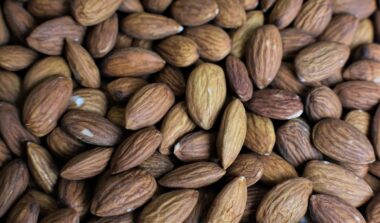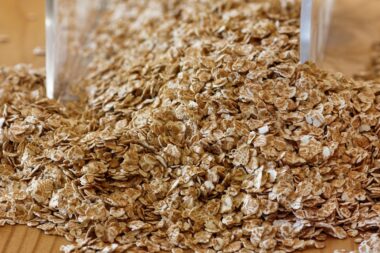Vegan Nutrition Tips for Strength Training Athletes
Nutrition plays a crucial role in the performance and recovery of athletes. For strength training athletes following a vegan lifestyle, it is essential to focus on nutrient-dense foods to ensure optimal energy levels. There are specific considerations to account for when planning a vegan diet that aids in building muscle and improving recovery times. This includes the need for adequate protein sources, essential fatty acids, vitamins, and minerals. Plant-based proteins such as beans, lentils, and tofu should be staples in the diet. It’s important to consume a variety of these sources to ensure a complete amino acid profile. Incorporating nuts and seeds can provide healthy fats and additional protein, enhancing overall nutrition. Hydration is equally vital; athletes should ensure they drink enough water to support intensified training. Additionally, supplementation may be necessary for nutrients like Vitamin B12, iron, and omega-3 fatty acids. Working closely with a nutritionist can help tailor diet plans according to individual needs. Remember, eating a well-rounded, nutrient-rich, plant-based diet is key for vegan athletes aiming to excel in strength training.
Strength training demands increased protein intake, which can sometimes pose a challenge for vegan athletes. They can utilize various plant-based protein options to meet these requirements. Legumes, tempeh, seitan, and quinoa are all great sources of protein essential for muscle repair and growth. Combining different protein sources throughout the day can help achieve complete protein profiles. For example, pairing rice and beans can provide all essential amino acids needed for recovery. In addition, consider using protein powders derived from pea, rice, or hemp protein. These can be convenient for shakes post-workout, delivering protein quickly. It is crucial to be mindful of post-exercise nutrition as well; consuming protein coupled with carbohydrates enhances recovery. Aim to eat whole, minimally processed foods whenever possible to maximize nutrient intake. A colorful plate often means a variety of vitamins and minerals, which are vital during strength workouts. The importance of meal prep cannot be overstated; allocating time to plan meals ensures nutritional goals are met without stress. Regularly checking in on dietary habits can lead to better performance and consistent strength gains over time.
Incorporating Essential Nutrients
In order to properly fuel their workouts, vegan athletes must ensure they include essential nutrients that contribute to recovery and overall health. Iron and zinc are particularly vital for endurance athletes as they support oxygen transport and immune function. Rich plant-based sources of iron include lentils, spinach, and pumpkin seeds. To enhance iron absorption, it is advisable to pair these foods with vitamin C-rich fruits and vegetables like oranges or bell peppers. Zinc can be found in foods like chickpeas, nuts, and seeds. Another critical component of a vegan athlete’s diet is calcium, which is paramount for maintaining bone health and muscle function. Almonds, tahini, and leafy greens like kale are excellent calcium sources. Additionally, vitamin D may be necessary, especially if sun exposure is limited; fortified plant milks can provide beneficial doses. Creatine, although difficult to obtain from plant sources alone, can be supplemented by those looking to enhance strength training results. Finally, staying connected with dietary needs through regular assessments aids in maintaining optimal health and performance levels.
Vegan athletes need to be particularly vigilant about their omega-3 fatty acid intake, vital for reducing inflammation and promoting heart health. Flaxseeds, chia seeds, and walnuts are rich in ALA, a type of omega-3 that provides substantial benefits. Incorporating these into daily meals can help achieve recommended levels while supporting training goals. Taking algae-based supplements can also provide more direct sources of DHA and EPA, forms of omega-3 primarily found in fish. To maximize performance, understanding the importance of timing meals can’t be understated. Consuming carbohydrates and proteins within a 30-minute window post-workout can stimulate recovery and help replenish glycogen stores. Meal prepping with pre-nutrition boosts energy levels before working out and maintaining steady energy throughout the day. Aim to eat every three to four hours to keep energy stable. Don’t overlook the power of snacks; simple protein bars, nut mixes, or smoothies can be easily made with the right ingredients. Additionally, involving variety in your diet can combat monotony while enhancing overall enjoyment and satisfaction regarding your nutritional choices.
Supplementation Advice
Supplementation can be beneficial for vegan athletes to fill any gaps left by a plant-based diet. One high-priority supplement is Vitamin B12, as it is predominantly found in animal products. It’s essential for energy metabolism and keeping nerve cells healthy. B12 deficiencies can lead to fatigue, impacting strength training performance. Regular intake of fortified nutritional yeast, cereals, or straight supplements can be effective. Omega-3 supplements derived from algae are also recommended for those who do not consume sufficient sources of ALA. Creatine is another supplement worth considering; it helps regenerate ATP and can result in increased power and performance during workouts. Protein powders can also aid in meeting daily protein targets, particularly post-workout. Typically sourced from peas, brown rice, or hemp, they blend well in smoothies. Always opt for high-quality supplements, ensuring they are free from artificial additives. It’s prudent to consult with a healthcare provider or dietitian before introducing any new supplements to your regimen. Tailoring a supplement strategy to individual needs can significantly impact performance, overall health, and recovery times for vegan strength training athletes.
Balancing macronutrients across all meals helps maintain energy levels throughout the workouts. For athletes, the right balance between carbohydrates, proteins, and fats becomes crucial. Ideally, about 50-60% of total daily calories should come from carbohydrates to provide energy during high-intensity training. Prioritize whole grains, fruits, and vegetables that not only support performance but also aid in recovery. Consuming whole food sources prevents the intake of excessive added sugars found in processed foods, which can lead to energy crashes. Proteins from various plant sources should make up 20-30% of the diet, focusing on variety for optimal amino acids. The remaining 20% usually comes from healthy fats, essential for hormone production and overall health. Monitoring your macronutrient ratios through tracking can help refine and improve dietary habits. Experimenting with different diets can assist athletes in finding what works best for their unique needs. Additionally, listening to your body is an invaluable technique for optimizing overall health. Individual responses differ, so making adjustments is paramount in identifying personal dietary preferences for strength training success.
Conclusion
In conclusion, vegan athletes can achieve their strength training goals by focusing on a nutrition-rich diet tailored to their specific requirements. Ensuring adequate protein intake, monitoring nutrient levels, and embracing supplementation when necessary are fundamental to creating an optimal diet plan. Staying informed about vegan sources of essential vitamins and minerals can completely transform an athlete’s performance. With careful planning, meal prepping, and maintaining a balanced diet, vegan athletes can avoid potential deficiencies and achieve their peak performance levels. Integrating a diverse range of plant-based foods supports adequate energy supply and recovery, vital for any athlete engaged in rigorous training. Additionally, constant assessment of how different foods impact energy levels can lead to better dietary choices in the long run. Hydration, while often overlooked, is equally crucial and should be prioritized along with nutrition. Vegan athletes should celebrate their dietary choices while understanding that they can thrive like any other athlete. By investing time in learning, monitoring, and adjusting diets accordingly, they can excel in strength training competitions and maintain peak physical condition.
Staying active is a lifelong journey supported by the right nutrition. Vegan athletes can lead an inspiring lifestyle that combines personal values with optimal performance, proving that ethical choices can go hand in hand with successful training goals. Continuous education in nutrition will keep you ahead of the game and contribute further to overall health and wellness. Through community support, forums, and workshops, athletes can share experiences and ideas, enhancing their journey together. This collaboration not only motivates individuals but also creates a nurturing environment for learning. Always remember, achieving a balance between diet, training, and recovery leads to the best outcomes in any athletic endeavor. Maintaining an open mind to new foods and recipes will encourage enthusiasm towards your meal plans. This commitment to conscious eating further elevates performance while remaining true to vegan principles. Set achievable goals, celebrate small victories, and remain persistent through setbacks. The journey of a vegan athlete is rich and fulfilling, providing countless opportunities to learn, grow, and inspire others along the way.





